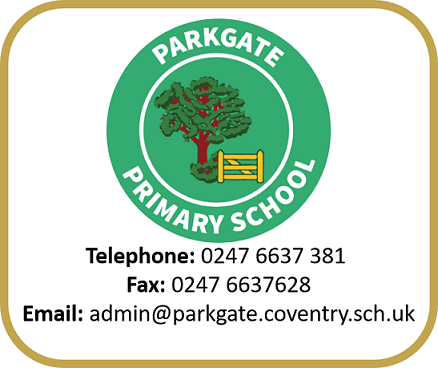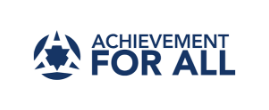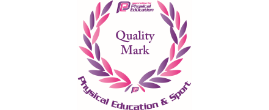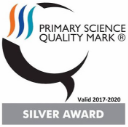COVID-19
This is where you will find the most up-to-date guidance with regards to how we will operate during these testing times. Please bear in mind that as a school we are following the guidance passed on to us from the Local Authority which has come from the Government. All schools will be following the same guidance to ensure consistency in approach in trying to minimise the impact of the Coronavirus.
To continue to other areas of our website, please navigate your way through using the tabs at the top of the page.
Updated - Tuesday 4th January 2022
Risk Assessment for January 2022 can be found below:
Parkgate Primary School TFT Final Risk Assessment
This is a live document subject to review in order to keep everybody safe.
Historical Risk Assessments for the return of children and staff - Week Commencing Monday 8th June can be found below. These were live documents subject to weekly review in order to keep everybody safe.
Parkgate Primary School TFT Final Risk Assessment (Historical)
Parkgate Primary School TFT Final Risk Assessment - EYFS / Year 1 (Historical)
Parkgate Catch-up Premium plan
Parkgate Catch-up funding plan
Remote Education Updates
Remote Learning Information for Parents
Important Education Updates
Ofsted: Coronavirus rolling update
Closure of Educational Settings – Information for Parents and Carers here
Guidance for schools, colleges and local authorities – maintaining educational settings here
Letter from Minister of Education to Education Sector here
Guidance on social distancing for everyone in the UK here
Stay at home: guidance for households with possible coronavirus (COVID-19) infection here
Updated Safeguarding Guidance here
COVID-19 Guidance on staying at home and away from others following government instruction on 1st May here
- staff, young people and children should stay at home if they are unwell with a new, continuous cough or a high temperature to avoid spreading infection to others. Otherwise they should attend education or work as normal
- if staff, young people or children become unwell on site with a new, continuous cough or a high temperature they should be sent home
- clean and disinfect regularly touched objects and surfaces more often than usual using your standard cleaning products
- supervise young children to ensure they wash their hands for 20 seconds more often than usual with soap and water or hand sanitiser and catch coughs and sneezes in tissues
- posters and lesson plans on general hand hygiene can be found on the eBug website
- unless you have been directly advised to close by the local Public Health England Health Protection Team, we recommend all education settings remain open
Background
This guidance will assist staff in addressing coronavirus (COVID-19) in educational settings. This includes childcare, schools, further and higher educational institutions.
This guidance may be updated in line with the changing situation.
Symptoms
The most common symptoms of coronavirus (COVID-19) are a new, continuous cough or a high temperature.
For most people, coronavirus (COVID-19) will be a mild infection.
NHS Overview with guidance can be found here
What to do if somebody develops symptoms of coronavirus (COVID-19) on site
If anyone becomes unwell with a new, continuous cough or a high temperature in an education setting they should be sent home and advised to follow the staying at home guidance.
If a child is awaiting collection, they should be moved, if possible and if appropriate, to a room where they can be isolated behind a closed door. Settings should be mindful of individual children’s needs – for example it would not be appropriate for younger children to be alone without adult supervision. Ideally, a window should be opened for ventilation. If it is not possible to isolate them, move them to an area which is at least 2 metres away from other people.
If they need to go to the bathroom while waiting to be collected, they should use a separate bathroom if possible. The bathroom should be cleaned and disinfected using standard cleaning products before being used by anyone else.
If they need clinical advice, they (or their teacher, parent or guardian) should go online to NHS 111 (or call 111 if they don’t have internet access). In an emergency, call 999 if they are seriously ill or injured or their life is at risk. Do not visit the GP, pharmacy, urgent care centre or a hospital.
If a member of staff has helped someone who was taken unwell with a new, continuous cough or a high temperature, they do not need to go home unless they develop symptoms themselves. They should wash their hands thoroughly for 20 seconds after any contact with someone who is unwell.
In most cases, closure of the educational setting will not be needed but this will be a local decision based on various factors such as establishment size and risk of further spread.
If there is an urgent public health action to take, the educational setting will be contacted by the local Public Health England Health Protection Team who will undertake a risk assessment and advise on any actions or precautions that should be taken. PHE will rarely advise a school to close but this may be necessary if there are so many staff being isolated that the school has operational issues. Your local authority will support you to make this assessment. PHE will work with the headteacher, principal or management team, and the Local Authority Public Health team, to advise on the management of children, pupils, students or staff.
Limiting the spread of coronavirus (COVID-19) in educational settings
Education settings can help reduce the spread of coronavirus (COVID-19) by reminding everyone of the public health advice.
Staff, children, pupils, students and families should be reminded to wash their hands for 20 seconds more frequently than normal.
Frequently clean and disinfect objects and surfaces that are touched regularly, using your standard cleaning products. Posters, leaflets and other materials are available.







